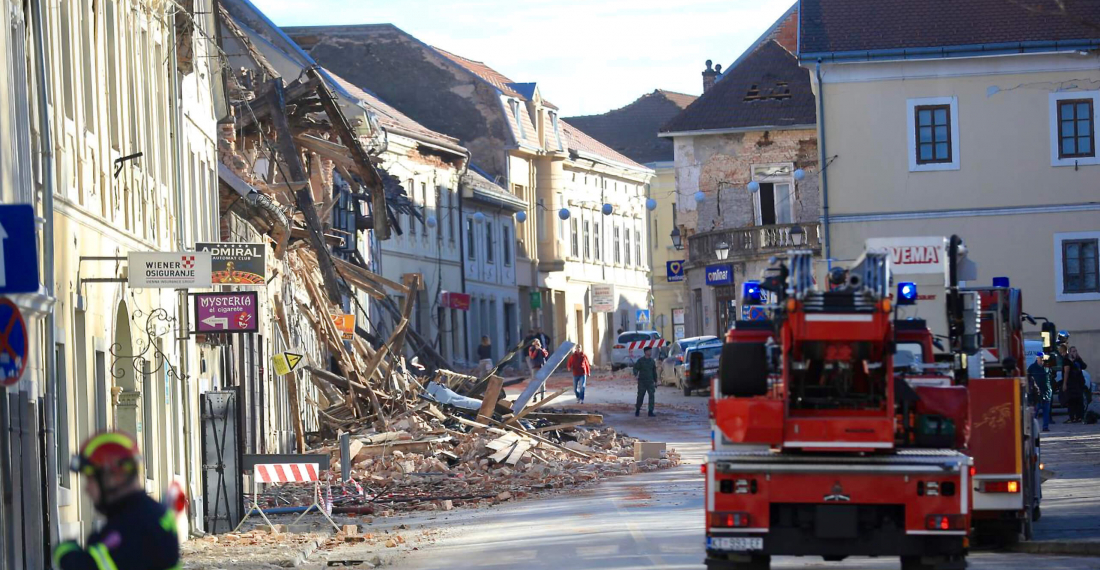In Croatia, authorities are assessing the damage from a strong earthquake
The first earthquake occured on Monday morning (28 December), followed by a second one on Tuesday (29 December) around 11.30 (CET). The European Mediterranean Seismological Center said a magnitude 6.3 earthquake hit 28 miles (46km) from Zagreb at 11.19 (CET), and also shook several neighbouring countries, officials and residents said. The epicentre was southeast of the capital Zagreb near Petrinja, a town of about 15,000 inhabitants.
The mayor of Petrinja, Darinko Dumbovic, reported to the local news channel N1 that at least one casualty had been reported. It concerns a 12-year-old girl in Petrinja. Twenty people have been taken to hospital with injuries.
The Red Cross reports on Twitter that there is a "very serious situation" in Petrinja.
Ursula von der Leyen, the president of the European Commission, has spoken to the Prime Minister of Croatia, Andrej Plenkovic, pledged aid to Croatia. "We are ready to support", said Von der Leyen on Twitter. She had asked Janez Lenarcic, the European commissioner for crisis management, to stand ready to travel to Croatia to provide assistance.
source: commonspace.eu with agencies
photo: Firefighters arrive after an earthquake in Petrinja (REUTERS)







